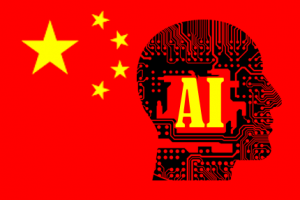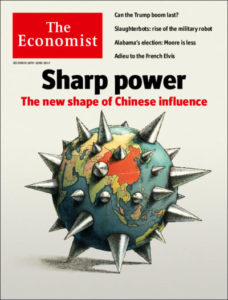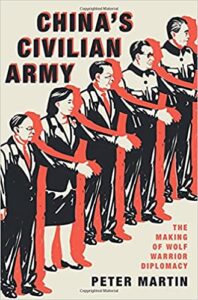
Credit: Madsciblog
A U.S. citizen and four officials from China’s Ministry of State Security (MSS) were charged in an indictment, unsealed in federal court in Brooklyn yesterday, with conspiracy and other charges related to an espionage and transnational repression scheme, the U.S. Justice Department revealed today:
According to court documents, Wang Shujun, 73, of Queens, New York; Feng He, aka Boss He, of Guangdong; Jie Ji, of Qingdao; Ming Li, aka Elder Tang and Little Li, of Guangdong; and Keqing Lu aka Boss Lu, of Qingdao, allegedly participated in an espionage and transnational repression scheme in the United States and abroad. Wang was arrested on March 16, pursuant to a criminal complaint, and will be arraigned at a later date. He, Ji, Li and Lu remain at large.
 “We will not tolerate efforts by the PRC or any authoritarian government to export repressive measures to our country,” said Assistant Attorney General Matthew G. Olsen of the Justice Department’s National Security Division. “These charges demonstrate the Justice Department’s unwavering commitment to hold accountable all those who violate our laws in seeking to suppress dissenting voices within the United States and to prevent our residents from exercising their lawful rights.”
“We will not tolerate efforts by the PRC or any authoritarian government to export repressive measures to our country,” said Assistant Attorney General Matthew G. Olsen of the Justice Department’s National Security Division. “These charges demonstrate the Justice Department’s unwavering commitment to hold accountable all those who violate our laws in seeking to suppress dissenting voices within the United States and to prevent our residents from exercising their lawful rights.”
The arrests are the latest exposure of China’s international influence operations, a key dimension of what the National Endowment for Democracy’s International Forum calls Beijing’s sharp power.
The Chinese government has been accelerating various moves to seize control of discourse power, especially in cyberspace, notes analyst Yatsuzuka Masaaki. a senior fellow in the China Division of Japan’s National Institute for Defense Studies. The Xi Jinping administration is becoming more aggressive in its control of narratives, moving from stable governance at home to strengthening its influence on external speech, he writes for the Asia-Pacific Review.
 The propaganda efforts to spread the legitimacy of the CCP regime and the coercive wolf warrior diplomacy are currently not very effective, Masaaki adds. However, China’s efforts in this area of discourse power are taking a new turn with the development of information technology, with Beijing strengthening its efforts to take the lead in shaping international norms and international standardization. In addition, The PLA is also deepening its discussion of military operations including the cognitive domain as it prepares for ‘intelligentized warfare.’
The propaganda efforts to spread the legitimacy of the CCP regime and the coercive wolf warrior diplomacy are currently not very effective, Masaaki adds. However, China’s efforts in this area of discourse power are taking a new turn with the development of information technology, with Beijing strengthening its efforts to take the lead in shaping international norms and international standardization. In addition, The PLA is also deepening its discussion of military operations including the cognitive domain as it prepares for ‘intelligentized warfare.’
But the regime is also employing ‘old tech’ to amplify its ideological messaging.
Under Xi’s leadership, the loudspeaker has regained its old function, strengthening propaganda and ideology at grass-roots units – meaning at the lowest levels of the Party-state bureaucracy, writes Stella Chen, Senior Researcher with the China Media Project:
While ideology had gradually faded in importance in China through the reform and opening period from 1978 to the 2000s in favor of Dengian pragmatism, Xi Jinping’s rise to the position of general secretary of the CCP in November 2012 brought the steady return of ideology to the center of politics. This became clear with the introduction of the hardline Document 9 in the spring of 2013, outlining “prominent problems in the present ideological sphere,” and calls in August 2013 for a re-invigoration of Marxist ideology.
What @ThinkDemocracy calls #China‘s #sharppower exposed: U.S. Citizen & 4 #CCP Intelligence Officers Charged with Spying on Prominent Dissidents, Human Rights Leaders & Democracy Activists. https://t.co/ZZ5JN2Ct7N
— Democracy Digest (@demdigest) May 18, 2022







